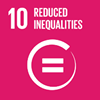News
Pathfinding new book on Social Mobility in Developing Countries out now
The edited volume Social Mobility in Developing Countries: Concepts, Methods, and Determinants fills a crucial gap in social mobility studies and provides the foundation for future research on social mobility in countries of the Global South. As of 21 December 2021 the first press of the book is available from Oxford University Press, both in hardcover and free to download via full open access.
In the volume, authors from around the world, representing the expertise of several disciplines, have come together to argue the need for a social mobility-focused research agenda. Their new book, Social Mobility in Developing Countries: Concepts, Methods, and Determinants, edited by Vegard Iversen, Anirudh Krishna, and Kunal Sen is an authoritative and foundational text that offers students, researchers, and practitioners the tools needed to study and improve social mobility in the Global South.
This pathfinding book — a comprehensive review of the concepts, methods, and determinants of social mobility — is an argument to move beyond poverty and inequality reduction frameworks and towards the transformative potential of increased social mobility.
About
Social mobility is the hope of economic development and the mantra of a good society. There are disagreements about what constitutes social mobility, but there is broad agreement that people should have roughly equal chances of success regardless of their economic status at birth. Concerns about rising inequality have engendered a renewed interest in social mobility — especially in the developing world.
However, and while new research is emerging, major knowledge gaps remain about patterns and determinants of income, educational, and occupational mobility in developing countries. That findings may differ greatly for the same country, depending on concept, measure of mobility and the dataset used, make results harder to interpret and translate into policy action.
The contributions to this volume address conceptual, data and other challenges when researching social mobility in settings where agriculture and the informal sector absorb most of the workforce — we also embark on the task of rectifying some of the gender imbalances manifest in the early literature. Generating knowledge that can guide and strengthen research practice and is relevant to policy is a principal concern. Another contribution of the book is the pulling together of emerging streams of knowledge from across social science disciplines.
Three basic questions frame the study of social mobility in the book. How do we assess the extent of social mobility in a given development context when datasets required by conventional measurement techniques are either limited or unavailable? How can we identify drivers and inhibitors of social mobility in particular developing country contexts? What do we know and how do we acquire the knowledge necessary to design interventions to accelerate upward social mobility and prevent and reduce downward mobility?
Endorsements
This collection of essays offers valuable insights on the measurement and meaning of social mobility both as an inherent part of economic development and as a valued outcome. This careful framing and measurement of an inherently long-term process, fraught with challenges even when the best data are available, deepens our understanding of equality of opportunity in a wide variety of countries and circumstances. This book will certainly be a valuable touchstone encouraging more research and thinking about the relationship between growth and mobility. Miles Corak, The Graduate Center, City University of New York
Social or economic mobility may well be the most important of all concepts related to social wellbeing, but it is also the most challenging, both conceptually and empirically. In this book, Iversen, Krishna and Sen have assembled an all-star interdisciplinary group of authors who deftly navigate the labyrinth of different meanings, measures and dimensions of mobility in the challenging context of low- and middle-income countries. The diversity of methods and perspectives is a real strength of this important contribution. Francisco H. G. Ferreira, Amartya Sen Professor of Inequality Studies, London School of Economics
How can people in developing countries attain a better life? How secure are their achievements? Can they avert catastrophic descents into enduring impoverishment? What enables or impedes their upward social mobility, and what interventions might reduce (and prevent the widening of) social and economic inequalities? From diverse disciplinary perspectives, the studies in this book provide vital insights into the challenges of studying and comprehending social mobility in developing countries—and underline the urgency of highlighting the ever-shifting risks and precarity with which most people must grapple in their daily endeavours to sustain (and perhaps even enhance) their wellbeing. Patricia Jeffery, Professor Emerita in Sociology, University of Edinburgh
 Join the network
Join the network